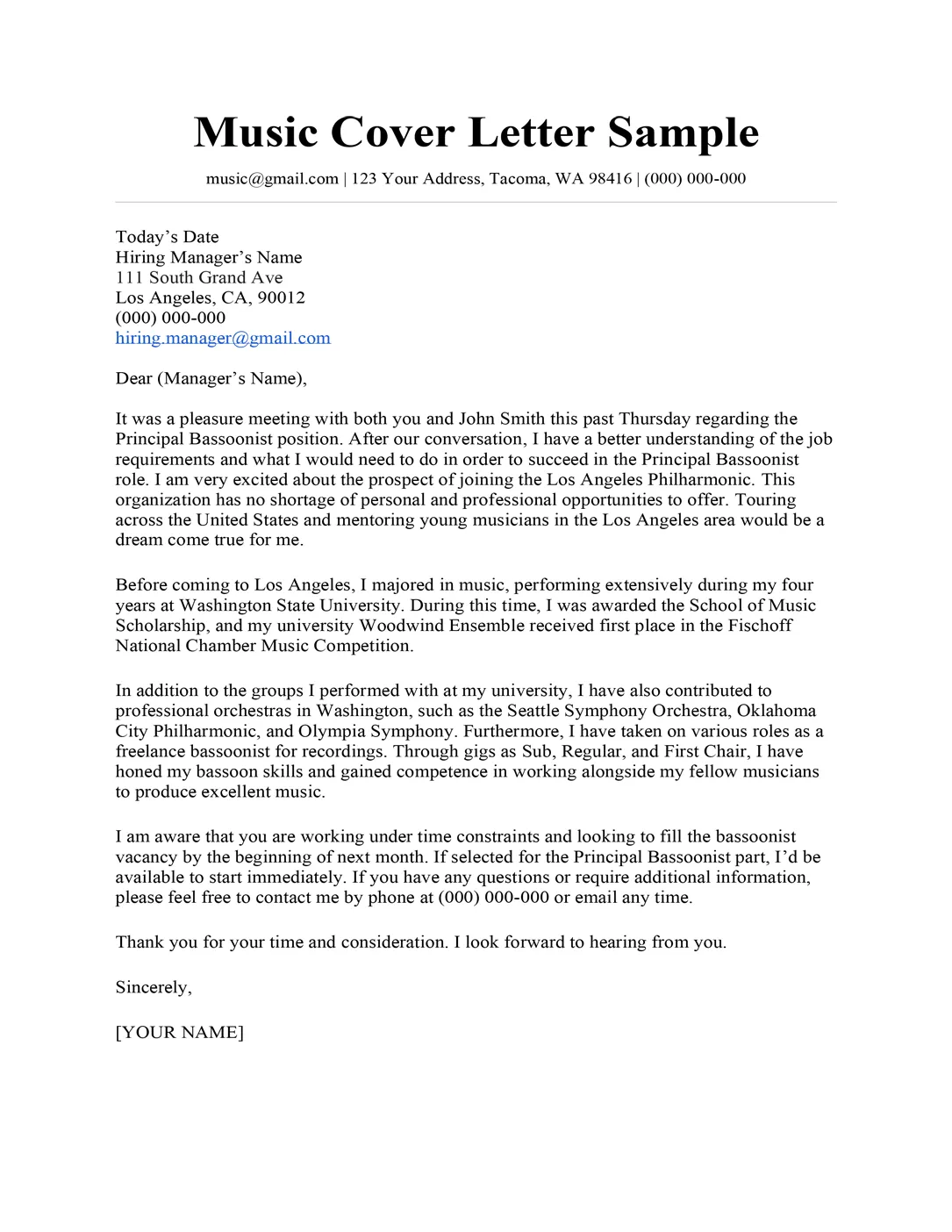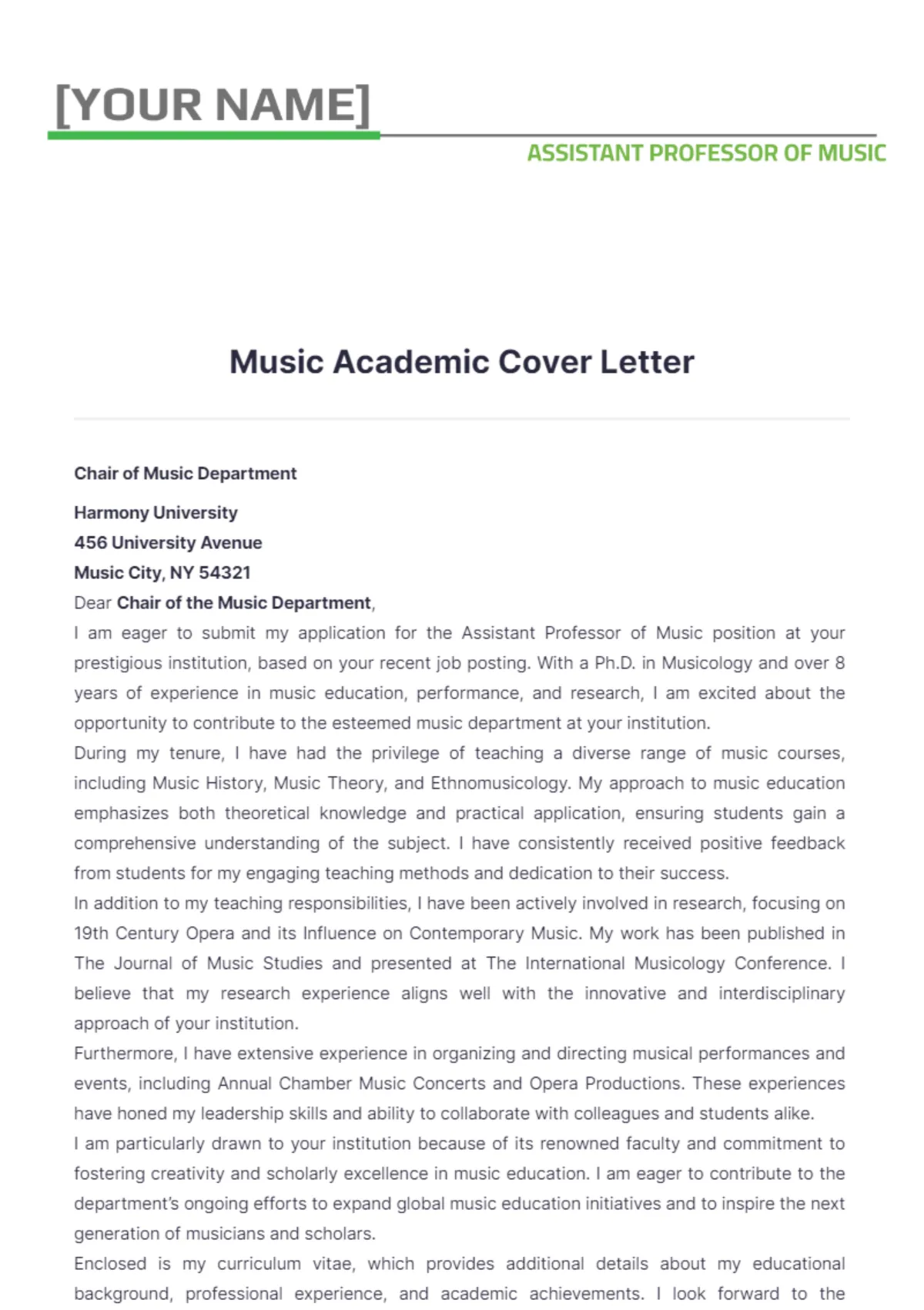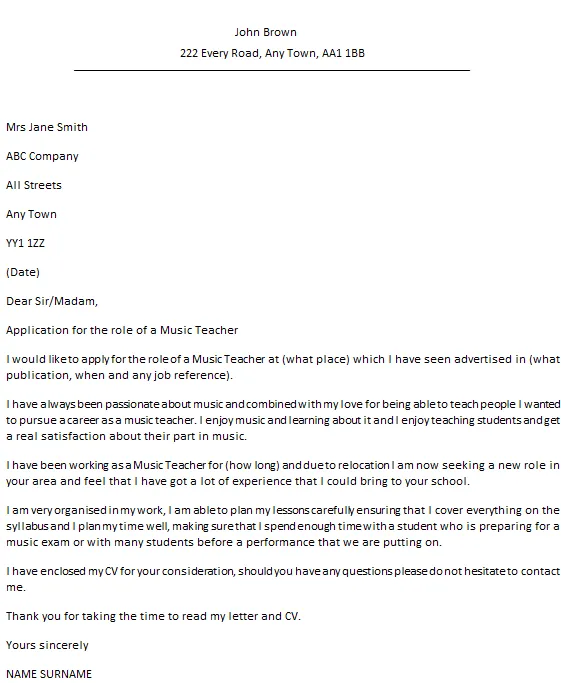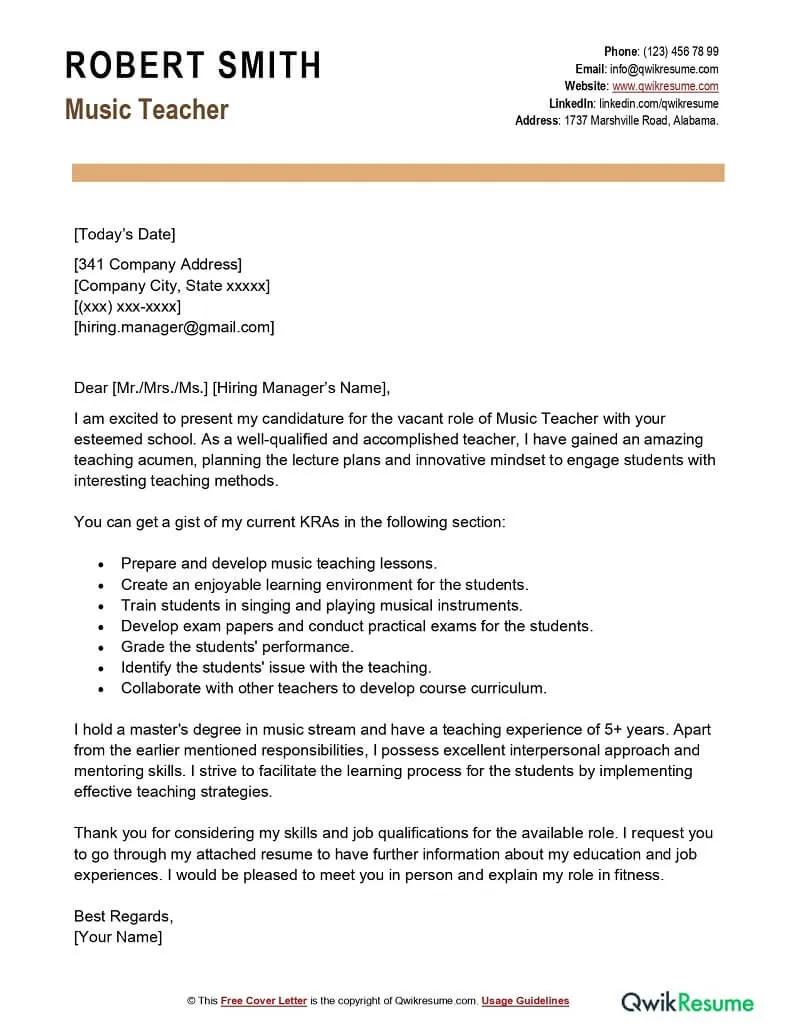Crafting a Cover Letter Music Industry
The music industry is a dynamic and competitive field, and a well-crafted cover letter is your initial handshake with potential employers. It serves as your introduction, allowing you to showcase your unique blend of skills, experience, and passion for the industry. A compelling cover letter is not just a formality; it is a crucial tool that can significantly increase your chances of landing an interview and ultimately, your dream job. You should always think of the cover letter as a way to stand out from the crowd, and illustrate the ways in which you can contribute meaningfully to the prospective company. This initial communication is your opportunity to impress, differentiate yourself, and leave a lasting impression on the hiring manager.
Understanding the Music Industry Landscape
Before you start writing, understanding the music industry is paramount. This involves recognizing its diverse sectors, including record labels, publishing houses, live music venues, artist management firms, and digital music platforms. Each sector has its own nuances, requirements, and specific vocabulary. Researching the company you are applying to, its values, and its recent achievements is critical. This knowledge allows you to tailor your cover letter to their needs, demonstrating your genuine interest and understanding of their place within the industry. For example, if applying to a digital music platform, emphasize your understanding of streaming, data analytics, and audience engagement. Conversely, if applying to a traditional record label, show familiarity with A&R, marketing, and artist development.
Key Elements for Music Industry Cover Letters

A strong music industry cover letter comprises several key elements. Start with a compelling opening that grabs the reader’s attention, expressing your enthusiasm and stating the position you are applying for. The body of the letter should highlight relevant skills and experiences, quantify your achievements whenever possible. Provide specific examples of your past work, demonstrating your understanding of the music industry. Include skills like communication, project management, and problem-solving, along with any specific knowledge pertinent to the role, such as music production, marketing, or licensing. Close with a confident and professional statement, reiterating your interest and eagerness to contribute to the company’s success, and a call to action to schedule an interview. Remember to proofread it thoroughly to eliminate errors.
Highlighting Relevant Skills and Experience
The most crucial part of the cover letter is demonstrating how your skills and experience align with the job requirements. Identify the key skills the employer is seeking, and provide concrete examples of how you have utilized these skills in the past. Quantify your accomplishments whenever possible; for instance, instead of saying “managed social media,” state “increased social media engagement by 30% within six months.” Showcase your knowledge of industry-specific software, trends, and practices. Don’t just list your skills; describe situations where you successfully applied them. Make sure to tailor these examples to each job application, showing that you understand the demands of the specific role you are applying for and can contribute directly.
Music Industry Examples Cover Letter
To make your cover letter impactful, examine examples. Search online for examples of cover letters in your desired role, such as A&R, marketing, or artist management. Analyze how successful candidates have presented their skills, quantified their achievements, and demonstrated their understanding of the music industry. These examples serve as a guide to help you tailor your cover letter. Note the structure, tone, and the type of information included, and then adapt them to showcase your unique qualities and experiences. Remember that copying an example is not the goal, it is about understanding the components and how to construct an effective cover letter for your specific application.
Tailoring Your Cover Letter for Specific Roles

Every job in the music industry demands a different set of skills and a unique approach to the cover letter. For example, if you’re applying for a marketing role, emphasize your experience in digital marketing, social media management, content creation, and audience engagement. If you’re aiming for an A&R position, showcase your ability to identify talent, your knowledge of music trends, and your network within the industry. For positions in artist management, highlight your communication skills, organizational abilities, and experience in coordinating projects. The more you tailor the letter to the specific job requirements, the more effectively you can show the hiring manager that you are a great fit.
Demonstrating Passion and Enthusiasm
The music industry thrives on passion. Express your enthusiasm for music and your eagerness to contribute to the company’s mission. Mention the artists you admire, the music trends you follow, and the specific projects that resonate with you. This personal touch helps you to stand out from other candidates. Your passion should be genuine. Do not be afraid to express what inspires you about the industry, what excites you about the company, and why you are an ideal candidate. Employers in the music industry are looking for people who genuinely love music and understand the value of hard work.
Cover Letter Music Industry Tips to Make it Shine
To make your cover letter exceptional, consider these tips. Keep it concise; aim for one page. Use a professional tone and avoid slang. Proofread meticulously for any errors in grammar, spelling, and punctuation. Customize the letter for each job you apply for. Research the company and hiring manager. Use action verbs to describe your accomplishments, and include a call to action to interview you. Consider getting feedback from a career counselor or a music industry professional. Finally, use a clean and easy-to-read format. Remember, the goal is to get an interview.
Formatting Your Music Industry Cover Letter

Formatting significantly impacts your cover letter. Use a clear, professional font like Arial or Times New Roman, and keep the font size between 11 and 12 points. Use standard margins and single-space your text, with a space between paragraphs. Organize your letter with clear sections, headings, and bullet points to make it easy to read. Include your contact information at the top, along with the date and the hiring manager’s name (if you know it). A well-formatted letter shows attention to detail and respect for the reader’s time. Good formatting makes your letter more attractive and easier to navigate.
Proofreading and Polishing Your Cover Letter
Before sending your cover letter, proofread it meticulously. Errors can undermine your credibility. Read it aloud to catch any awkward phrasing or grammatical errors. Use spell-check and grammar-check tools, but also manually review the document. Consider asking a trusted friend, mentor, or career counselor to review it for you. Ensure that your cover letter is free from typos, grammatical errors, and formatting issues. A polished cover letter shows that you are detail-oriented and takes your application seriously.
In the end, a cover letter is a crucial tool in your job search arsenal. By understanding the industry, highlighting relevant skills, demonstrating passion, and polishing the presentation, you can create a cover letter that helps you stand out and get hired.
